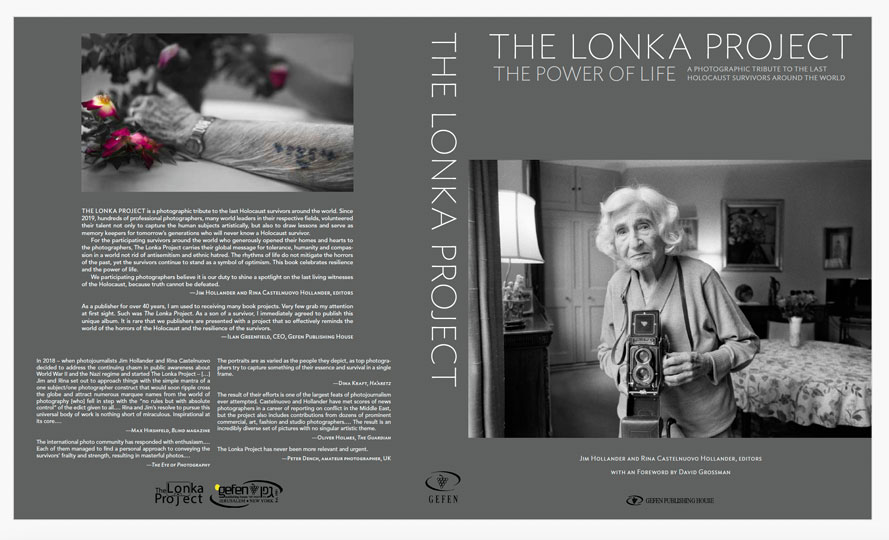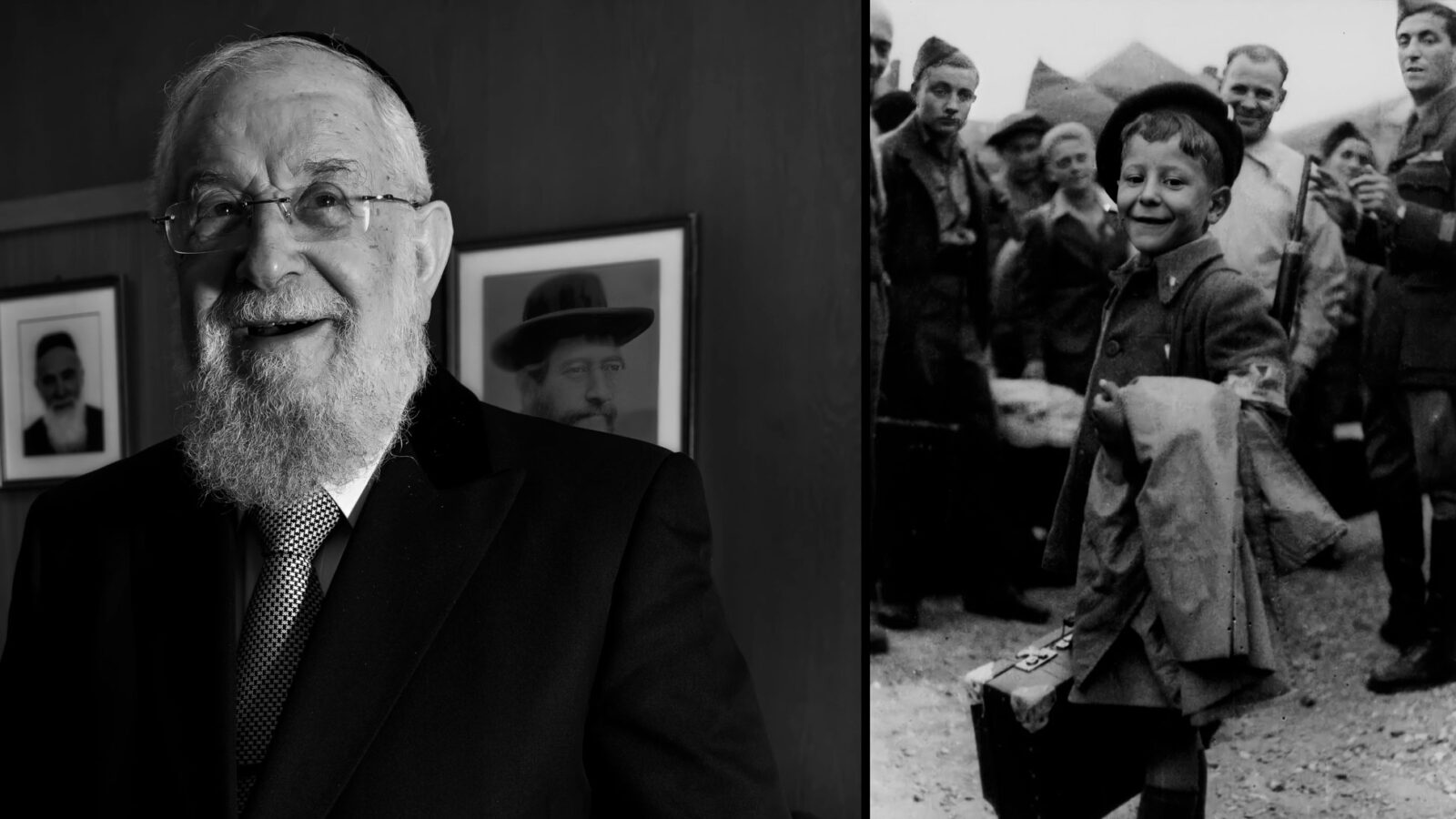In his latest project, Jim Hollander ’68 helps document the last living Holocaust survivors
As an award-winning photojournalist, Jim Hollander ’68 (@jimhollanderpix on Instagram) has documented wars, global events, and more—but no project has been more rewarding than The Lonka Project, an expansive tribute to the last living Holocaust survivors.
Initiated in 2019 by Hollander and his wife, Rina Castelnuovo, also an award-winning photographer and filmmaker, The Lonka Project documents some 450 Holocaust survivors in portraits taken by more than 310 photographers in 30 countries. The project takes its name from Rina’s mother, Dr. Lonka (Eleanora) Nass, a concentration camp survivor, and has been exhibited at the United Nations in New York, and in Israel, Poland, Berlin, and Zurich.
In 2024, the photos and stories were published into a mesmerizing book (Gefen Publishing) that reminds readers of the horrors of the Holocaust and the resilience of its survivors. At right is an abridged excerpt from Rabbi Yisrael Meir Lau, whom Hollander photographed in Tel Aviv in 2019. “I had the idea of combining the photos of him now and when liberated, as the smiles were very similar and spoke to me of the vitality and belief in life he had to survive and continues to have in his nineties.”
Rabbi Yisrael Meir Lau
Born in June 1937 in the Polish town of Piotrków Tybunalski, Yisrael Meir Lau was separated from his mother at age 7 and imprisoned in a Nazi slave labor camp, and then in the Buchenwald concentration camp, where his older brother Naphtali concealed him.
Meir Lau survived and was freed from the Buchenwald camp in 1945 after its liberation by the United States Army (see photo, at left). He became a poster child for miraculous survival after U.S. Army chaplain Rabbi Herschel Schacter found him hiding in a heap of corpses. His entire family had been murdered except his older brother, a half-brother, and an uncle already living in Mandatory Palestine. Lau immigrated there with his brother and was raised by an aunt and uncle.
In 1961, he was ordained as a rabbi, ultimately becoming Chief Rabbi of Israel in 1993 and also Chief Rabbi of Tel Aviv. He served for many years as the Chairman of the Yad Vashem Holocaust Memorial in Jerusalem. Rabbi Lau is the 38th generation in an unbroken family of rabbis. His son Moshe Lau currently serves as Israel’s Ashkenazi Chief Rabbi.
Seventy-five years after he was discovered in the Buchenwald camp, Rabbi Lau was photographed just before he was about to observe the Passover Seder with social distancing from his many family members, like so many other Holocaust survivors. The rabbi says, “This year the night of Passover will be different. This time I will not talk to people, but about history.”


